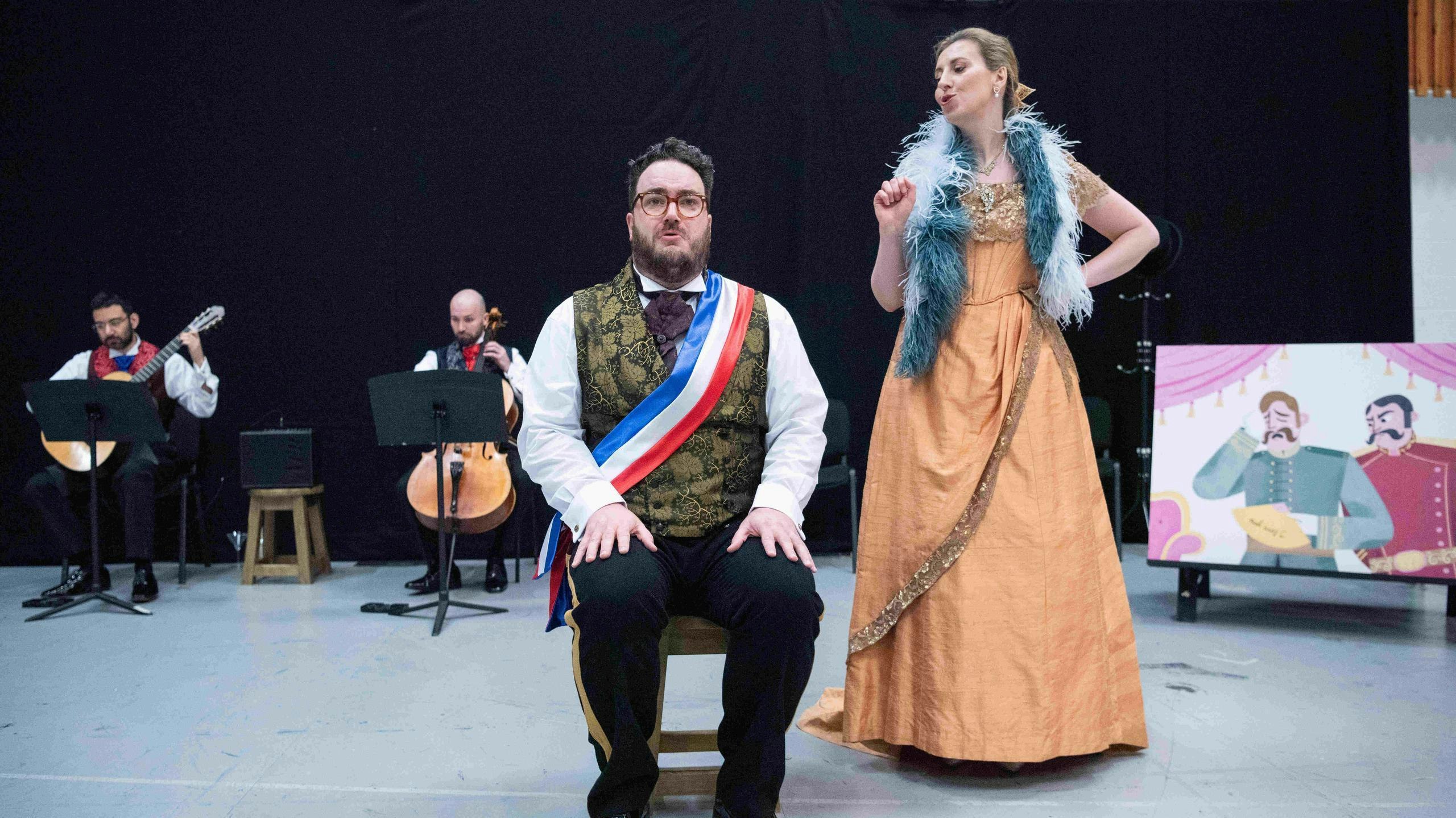This article is taken from the May 2025 issue of The Critic. To get the full magazine why not subscribe? Right now we’re offering five issues for just £10.
The notion that the consumption (aka “appreciation”) of art makes you a better person is bandied about pretty freely but is surely amongst the most obviously false of all the shibboleths on which our doomed civilisation totters along. Surely the only people who might believe it are the sort of lower-middlebrow dimmos who frequent the theatre.
Meanwhile, everyone else in the world knows that over-indulgence in such pursuits has a markedly negative effect on the moral character — as duly noted by Hollywood, with a list of etiolated-aesthete villains from Lex Luthor to Cruella de Vil, Indiana Jones’s nemesis Belloq, the bad gallery dude in Beverley Hills Cop and the rest.
Those who favour the art-ennobles-you shtick certainly have some tricky questions to answer regarding their fellow Parnassians. Stalin, for example, famously assumed the role of Soviet epicure-in-chief on top of his other responsibilities, sparing a minute now and then to ring up various authors and composers with helpful hints on how they might improve their offerings. Mao always enjoyed a slap-up performance of the agit-propera The Red Detachment of Women. And so on.
The bien-pensant response to this has always been to transfer blame to the people who created the sort of stuff admired by monsters. This impulse is clearly the basis of the general hatred of the entire phenomenon of opera.
If the whole shameful caboodle can be dismissed as simply misbegotten, appealing only to the ghastliest members of the human race, many inconvenient truths can be elided.
Traditionally the guy who has to do most of the heavy lifting here is, naturally, Richard Wagner, with his gang of dodgy acolytes. But the counter-argument was well put in a recent séance, when the composer’s spirit, speaking from beyond the grave, said: “Look, for the last time, it’s not my fault that The Mastersingers of Nuremberg is Michael Gove’s favourite opera!”
Interesting that Wagner’s ghost didn’t even mention Hitler. In my opinion, he was miffed that the Führer’s fave was not one of his ponderous, nationalist fripperies but rather the delightful Franz Lehár 1905 song-and-dance number The Merry Widow. Adolf was simply crazy about it, and he drove everyone in the Wolf’s Lair and the Bunker off their nuts by playing it the whole time.
And he showed a sound critical grasp: when Martin Bormann asked (through gritted teeth) whether he should play the Berlin or Munich recording to celebrate Hitler’s 54th birthday, the Führer plumped immediately for Munich, which as everyone knew was “ten per cent better!”
Really it all shows excellent taste on his part. Operetta can be a fine antidote to the various idiocies of opera. For a start, it treats in a refreshingly direct way things — sex and money — that opera can be fantastically coy about (for all the script tells us about her job, Violetta in La traviata might as well be a high-end party organiser rather than Paris’s top hooker).
The set-up in The Merry Widow (at Scottish Opera from 30 April through June, and transferring to Opera Holland Park in the summer) is pleasingly bald.

Danilo, a dipso whoremonger attached to the “Pontevedran” embassy in Paris, is instructed by the ambassador to seduce and marry Hanna Glawari, a beady-eyed gold-digger who ensnared, very much à la Anna Nicole, the dodderiest old moneybags in Pontevedro — who then hauled off and died on the honeymoon. If Hanna now marries a foreigner, bang goes her twenty million, and the country will be bankrupt.
With its cute ability to suggest underlying neurosis through plots of purest fluff, operetta suited Vienna terrifically well (as it did Paris and London too, in different ways). The Empire had been not so gently falling to bits since the 1860s — with everyone furiously pretending everything was fine — and the capital was now Europe’s nexus of angsty modernism, with the Secession and Klimt and Richard Strauss and Schoenberg and Zweig and Freud busy ripping everything to bits.
Just as Johann Strauss had painted a world dancing on a volcano in his 1874 Die Fledermaus, so Lehár rebooted operetta for the new generation — who wouldn’t have to wait too long for that volcano to erupt all over them very satisfactorily. Whilst Lehár seems to be channelling old-skool Johann Strauss, actually he is rather closer to modernist Richard in a score that hides its detail and cleverness behind some of the swooniest tunes ever written.
The “Merry Widow Waltz” — Hanna and Danilo’s duet Lippen schweigen — would turn anybody into sex-bombs, but Lehár’s trick is to give these unprepossessing people a good deal of charm and wit and sympathy from the start.
Not everyone was seduced. Richard Strauss called the piece “the very expression of degeneration and a danger to German culture”. No doubt he thought he was on solid ground: operetta as a whole was suspiciously Jewish (though Lehár was a Hungarian Catholic).
But Adolf’s imprimatur magically turned The Merry Widow into “Holy German Art” — even whilst one of the librettists, Victor Léon, aged 82, starved to death in hiding in Vienna in 1940, and the original Danilo, Louis Treumann, died with his wife at Theresienstadt.
As Josef Goebbels said to Strauss: “The art of tomorrow is different from the art of yesterday. You, Herr Strauss, are yesterday!”












